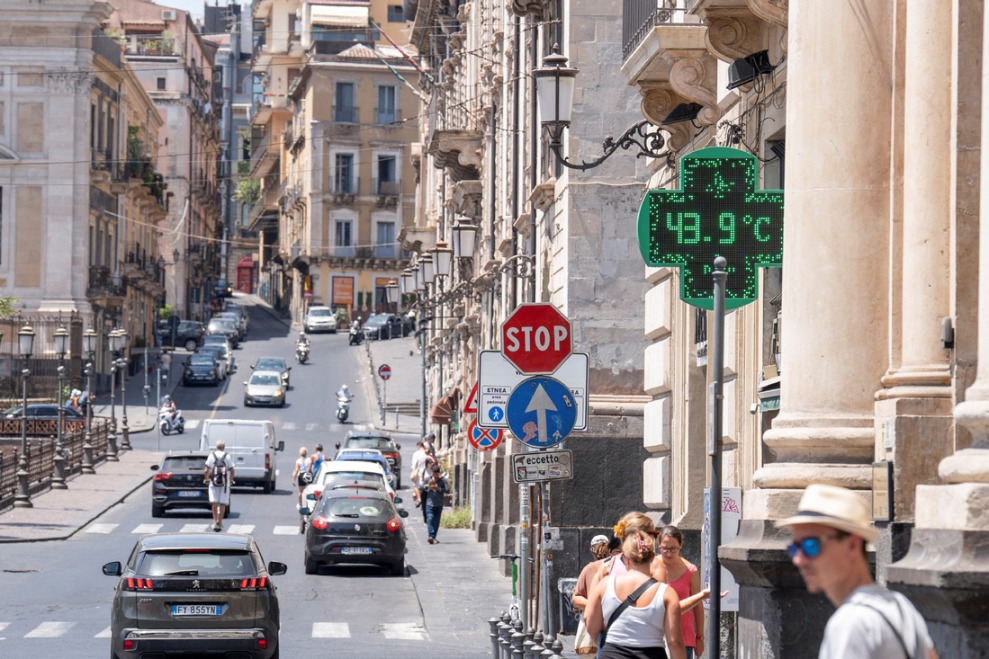US relaxes rules for the fully vaccinated


The US on Monday relaxed guidelines for those fully vaccinated while health officials expressed concern about a possible spike in the more contagious variant of the coronavirus, especially in Florida, now the epicenter of the strain first discovered in the UK and where thousands of college students are arriving for spring break.
The Centers for Disease Control and Prevention (CDC) announced the new guidelines about vaccinated people, saying they can gather with other vaccinated people indoors without masks or physical distancing.
"With more and more people vaccinated each day, we are starting to turn a corner," said CDC Director Dr Rochelle Walensky during a press briefing Monday. She called the guidance a "first step" toward restoring normalcy in how people come together.
She said more activities would be approved for vaccinated individuals once caseloads and deaths decline, more Americans are vaccinated, and as more science emerges on the ability of those who have been vaccinated to get and spread the virus.
In Florida, throngs of college students could be seen in news photographs and video on the beach in Fort Lauderdale, many without masks and ignoring social distancing. The city warned that police would enforce restrictions on alcohol, beach tents and scooters. St. Petersburg and Clearwater introduced a campaign to encourage safe behavior by asking visitors to sign a pledge to wear masks and spread out that will enter them in a prize drawing.
Republican Governor Ron DeSantis chose not to implement statewide mask mandates. Last year, Florida became one of the biggest states to loosen coronavirus restrictions when he reopened all restaurants, hotels and bars at full capacity.
In Miami Beach, Mayor Dan Gelber issued a stark warning to spring revelers: "Don't be foolish. Don't come here if you think this is an anything-goes environment. We will arrest you and it will ruin your time here."
There are 642 cases of the variant B.1.1.7 in the Sunshine State, more than any other state, according to CDC. The per-capita rate of COVID-19 patients currently in Florida hospitals is now about 25 percent above the national average, and new patients are arriving at hospital emergency departments at slightly higher rates than the rest of the country, according to Bloomberg.
Dr Peter Hotez, founding dean of the National School of Tropical Medicine, told CNN he is particularly concerned that college students heading to Florida's beaches could cause a surge of the B.1.1.7 variant, believed to be up to 74 percent more contagious than the original virus.
"You've got the B.1.1.7 variant accelerating in Florida. You've got all these 20-year-old kids. None of them are going to have masks. They're all going to be drinking. They're having pretty close, intimate contact," he told CNN. "And then, after that's all done, they're going to go back to their home states and spread the B.1.1.7 variant.
"Spring break in Florida could spell disaster for the country,'' he said.
Dr Michael Osterholm, the director of the Center for Infectious Disease Research and Policy, also warned of a possible spike in the more contagious variant. "We are in the eye of the hurricane right now," he said.
About a month ago, 1 to 4 percent of COVID-19 cases diagnosed in the US were of the B.1.1.7 variant, Osterholm said. But today, about 30 to 40 percent of new cases are the variant. When cases of B.1.1.7 have reached about 50 percent of the cases in Europe, the virus begins to "surge'', he added during an appearance Sunday on NBC News' Meet the Press.
Dr Anthony Fauci, the nation's top infectious disease expert, said Sunday that while the numbers of daily new coronavirus infections are significantly less than January, they have plateaued at what is still a very high number.
"Historically, if you look back at the different surges we've had, when they come down and then start to plateau at a very high level, plateauing at a level of 60 to 70,000 new cases per day is not an acceptable level. That is really very high," he said Sunday in an interview on CBS' Face the Nation.
The new CDC guidelines on fully vaccinated people also say that vaccinated people can come together in a single household with people considered at low risk for severe disease, such as in the case of vaccinated grandparents visiting healthy children and grandchildren.
Officials say a person is considered fully vaccinated two weeks after receiving the last required dose of vaccine. About 31 million Americans — or only about 9 percent of the US population — have been fully vaccinated with a federally authorized COVID-19 vaccine so far, according to the CDC.
The CDC is continuing to recommend that fully vaccinated people still wear masks, avoid large gatherings and keep physical distance from others when in public.
As of Sunday, about 58.9 million people have received at least one dose of a COVID-19 vaccine, including about 30.7 million people who have been fully vaccinated, according to the CDC. About 2.16 million doses are being administered per day on average.

































